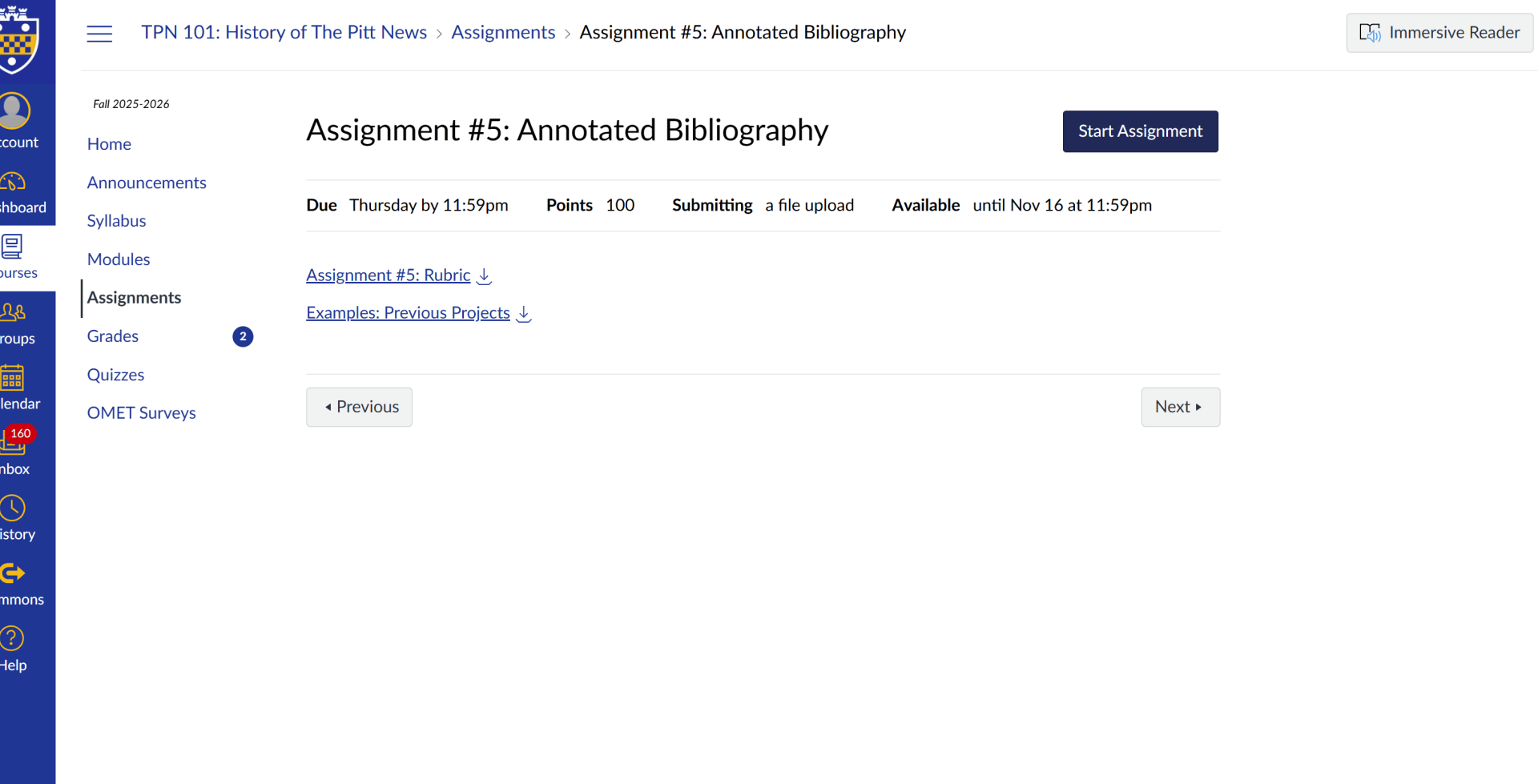In the wake of the Canvas outage on Oct. 20, students and faculty are still partial to digital deadlines and the accessibility online platforms offer.
Both professors and students report that the negatives of using digital deadlines — the online submission of assignments by a certain time as opposed to turning an assignment on paper, such as unreliable electronic dependence — are outweighed by its advantages, which include accessibility and encouraging independent academic accountability.
Learning management systems, like Canvas, utilize digital deadlines for daily coursework, a feature many classes use. Pitt adopted Canvas as its learning management system in 2019, making the switch from the now defunct platform Blackboard.
A Canvas outage impacted students across dozens of universities on Monday, Oct. 20, due to an Amazon Web Services disruption that impacted over 1,000 other services worldwide according to Brady Lutsko, communications director for Pitt Digital.
Carlee Miller, a first-year political science major, said she and her peers found the outage frustrating, with some classmates unable to complete key assignments.
“I specifically put around three hours of time aside in my afternoon so I could get [homework] done, but I couldn’t log into Canvas,” Miller said. “Thankfully, I had turned in [an] essay the night before it was due, but if I hadn’t done that, it would’ve been very stressful for me.”
Despite her frustrations, Miller said she prefers digital deadlines over in-person hand-ins for their easy organization and accessibility.
“I personally prefer the digital deadlines because I feel that it makes things a lot easier and more accessible for everybody,” Miller said. “I know, personally, it’s very easy to get unorganized and lose paper and it’s hard to keep all of them straight. Being digital definitely makes that easier.”
Tinukwa Boulder, Director of Innovative Technologies and Online Learning in the Office of the Dean and education professor of practice, highlighted the value and variety of using digital learning platforms like Canvas in education.
“Digital tools like Canvas extend learning beyond the physical classroom, offering opportunities for engagement and flexibility in both teaching and learning,” Boulder said. “The impact and use of Canvas can vary widely depending on the instructional goals, course design and how individual instructors and departments choose to implement it.”
According to Boulder, the efficacy of digital deadlines depends on the nature of the assignments given. Boulder primarily teaches online, asynchronous courses, so she utilizes digital deadlines for assignments.
“I think most instructors would prefer online submissions, as they help avoid the logistical challenges of managing and storing paper assignments,” Boulder said. “It’s also worth noting that instructors can still use Canvas to set deadlines and track submissions, even when students submit their work in person. It doesn’t have to be an either/or situation.”
Lily Assad, a first-year on a pre-dental track, said she prefers digital deadlines for the accessibility they offer, but noted that digital platforms can be subject to technological difficulty as well.
“You can submit from any room at any time, and if you turn it in through paper, there’s waste to print out the paper,” Assad said. “Sometimes, it’s difficult to upload things from my computer to campus drives, and I can end up missing my deadline as well.”
Boulder said the effort falls on students to engage with material and keep themselves accountable.
“There are small strategies, like finding someone to keep you accountable or consciously penciling in times for classes and coursework. Students know these things. They just need to be intentional in how they attend to them,” Boulder said.
Miller said she has difficulty remembering digital deadlines compared to in-person deadlines.
“There’s an extra layer of accountability that you have to remember the paper, bring it to class and have it printed and ready for that day,” Miller said. “Being digital makes [assignments] a lot more independent, and it’s definitely easier to procrastinate them and push them off until 11:30 at night.”
In addition to student accountability, Boulder said she feels the growing prevalence of digital tools in higher education requires instructors to actively prepare students for success.
“To thrive in online courses, students need to be self-motivated and develop strong study habits, along with effective communication, organization and time management skills,” Boulder said. “These skills aren’t always intuitive, so it’s important that we provide support to help students build the capacity to become successful online learners.”

